#Episode 87
Text
Lingthusiasm Episode 87: If I were an irrealis episode
Language lets us talk about things that aren't, strictly speaking, entirely real. Sometimes that's an imaginative object (is a toy sword a real sword? how about Excalibur?). Other times, it's a hypothetical situation (such as "if it rains, we'll cancel the picnic" - but neither the picnic nor the rain have happened yet. And they might never happen. But also they might!). Languages have lots of different ways of talking about different kinds of speculative events, and together they're called the irrealis.
In this episode, your hosts Gretchen McCulloch and Lauren Gawne get enthusiastic about some of our favourite examples under the irrealis umbrella. We talk about various things that we can mean by "reality", such as how existing fictional concepts, like goblins playing Macbeth, differ from newly-constructed fictions, like our new creature the Frenumblinger. We also talk about hypothetical statements using "if" (including the delightfully-named "biscuit conditionals), and using the "if I were a rich man" (Fiddler on the Roof) to "if I was a rich girl" (Gwen Stefani) continuum to track the evolution of the English subjunctive. Finally, a few of our favourite additional types of irrealis categories: the hortative, used to urge or exhort (let's go!), the optative, to express wishes and hopes (if only...), the dubitative, for when you doubt something, and the desiderative (I wish...).
Read the transcript here.
Announcements:
Thank you to everyone who shared Lingthusiasm with a friend or on social media for our seventh anniversary! It was great to see what you love about Lingthusiasm and which episodes you chose to share. We hope you enjoyed the warm fuzzies!
In this month’s bonus episode, Gretchen gets enthusiastic about swearing (including rude gestures) in fiction with science fiction and fantasy authors Jo Walton and Ada Palmer, authors of the Thessaly books and Terra Ignota series, both super interesting series we've ling-nerded out about before on the show. We talk about invented swear words like "frak" and "frell", sweary lexical gaps (why don't we swear with "toe jam!"), and interpreting the nuances of regional swear words like "bloody" in fiction.
Join us on Patreon now to get access to this and 80+ other bonus episodes! You’ll also get access to the Lingthusiasm Discord server where you can chat with other language nerds.
Here are the links mentioned in the episode:
'Irrealis' entry on Wikipedia
'How do you get someone to care about Shakespeare? Two words: Goblin Macbeth' on CBC
xkcd comic 'Conditionals'
'Pedantic about biscuit conditionals' post on Language Log
'The pragmatics of biscuit conditionals' by Michael Franke
Lingthusiasm episode 'This time it gets tense - The grammar of time'
'Realis and Irrealis: Forms and concepts of the
grammaticalisation of reality' by Jennifer R. Elliott
'If all the raindrops' on YouTube
'If I Were a Rich Man (song)' entry on Wikipedia
'Rich Girl (Gwen Stefani song)' entry on Wikipedia
'Louchie Lou & Michie One' entry on Wikipedia
'Louchie Lou & Michie One - Rich Girl' on YouTube
'Semi-Toned - Rich Girl (acapella)' on YouTube
'Subjunctive mood' entry on Wikipedia
'Céline Dion - Pour que tu m'aimes encore' on YouTube
WALS entry for 'Feature 73A: The Optative'
Lingthusiasm bonus episode 'How we make Lingthusiasm transcripts - Interview with Sarah Dopierala'
Lingthusiasm episode 'Listen to the imperatives episode'
'Dubitative' entry on Wikipedia
'A grammatical overview of Yolmo (Tibeto-Burman)' entry on WikiJournal of Humanities
You can listen to this episode via Lingthusiasm.com, Soundcloud, RSS, Apple Podcasts/iTunes, Spotify, YouTube, or wherever you get your podcasts. You can also download an mp3 via the Soundcloud page for offline listening.
To receive an email whenever a new episode drops, sign up for the Lingthusiasm mailing list.
You can help keep Lingthusiasm ad-free, get access to bonus content, and more perks by supporting us on Patreon.
Lingthusiasm is on Bluesky, Twitter, Instagram, Facebook, Mastodon, and Tumblr. Email us at contact [at] lingthusiasm [dot] com
Gretchen is on Bluesky as @GretchenMcC and blogs at All Things Linguistic.
Lauren is on Bluesky as @superlinguo and blogs at Superlinguo.
Lingthusiasm is created by Gretchen McCulloch and Lauren Gawne. Our senior producer is Claire Gawne, our production editor is Sarah Dopierala, our production assistant is Martha Tsutsui Billins, and our editorial assistant is Jon Kruk. Our music is ‘Ancient City’ by The Triangles.
This episode of Lingthusiasm is made available under a Creative Commons Attribution Non-Commercial Share Alike license (CC 4.0 BY-NC-SA).
#language#linguistics#lingthusiasm#episode 87#podcasts#episodes#irrealis#morphology#syntax#semantics#mood#if I was a rich girl#if I were a rich man#SoundCloud
78 notes
·
View notes
Text

lgbtq eldritch beings summoned by gay people being mirrors for each other
13 notes
·
View notes
Text
Maybe the little old Latvian ladies were right and with enough soup it’s possible to heal all wounds.
30 notes
·
View notes
Text

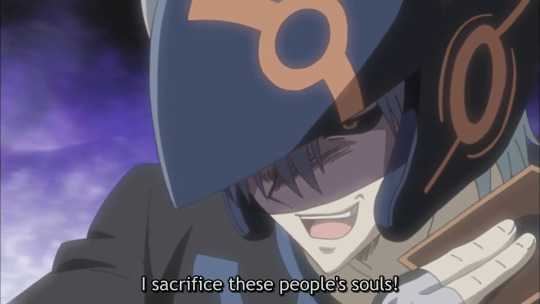


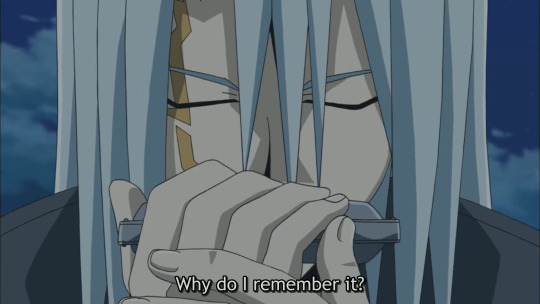
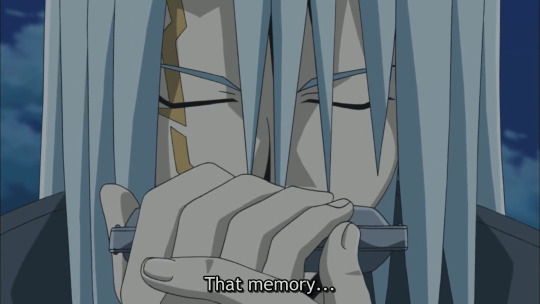
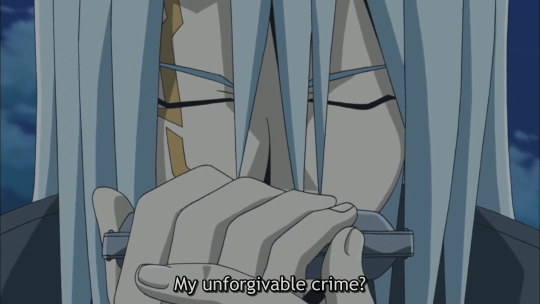
See, that's what I'd like to know. Why is Kiryu the only one who got to take advantage of the angst potential of remembering being a dark signer? Can you imagine how good it could have been to do that with more people than just him? (Misty, maybe? Also Carly. Carly. HELLO.)
It also feels a bit wasted because, well... Crashtown is the last time Kiryu shows up in person. That's it. I think it would sting less if fully redeemed post-Crashtown Kiryu got to make a few more cameos later, but he doesn't. (All he does is become a young single dad of two orphans, which.... good for him?)
#yugioh 5ds#kiryu kyosuke#kalin kessler#orchid watches 5ds (again)#screencaps#episode 87#I know I bang the Carly drum a lot but /she's my GIRL/ okay
33 notes
·
View notes
Text

In the second part of our abdication special, @duchessofostergotlands and @princesscatherinemiddleton are taking you through what actually happens when a monarch decides to quit their job. What's the legal process? What titles do they get? And who pays for their new life? Join us to find out!
Episode 87 - “Eat bread and suffer” - on Spotify, Apple, Google Podcasts and Amazon!
#on heir#on heir podcast#royals#royalty#royal fandom#british royal family#belgian royal family#dutch royal family#spanish royal family#danish royal family#japanese imperial family#history#Episode 87
10 notes
·
View notes
Text
😱🫨😱
He said, "Bren"
Trent Ikithon said he's real name.
I can't fucking breathe!
#keep the wizards name out of your mouth#caleb widogast#the mighty nein#critical role#campaign 2#bren aldric ermendrud#episode 87
17 notes
·
View notes
Text
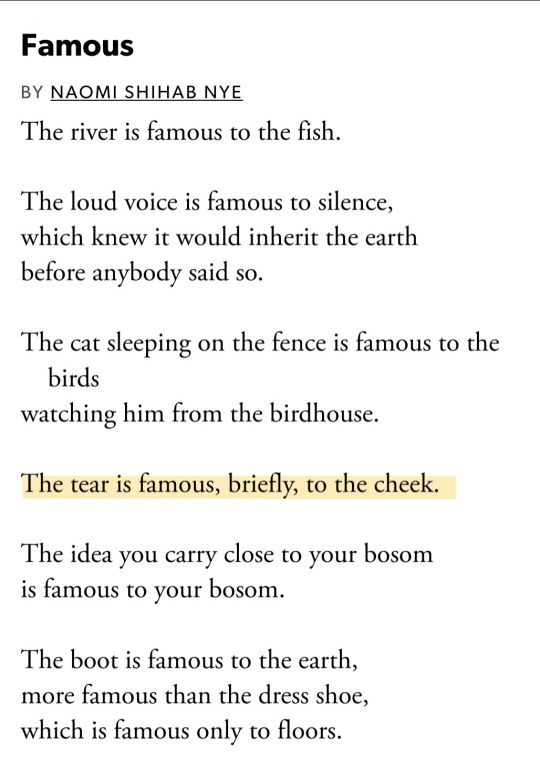
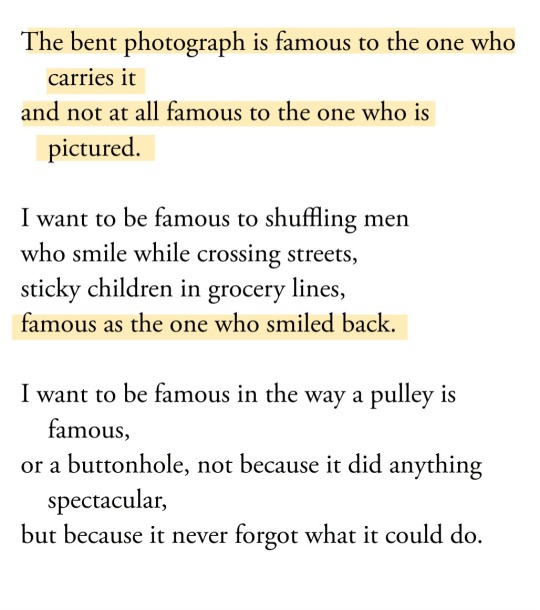
Famous (1995) by Naomi Shihab Nye
In Episode 87, Rachel brings a poet that should be famous.
Rachel: The poet I am bringing to the corner today—
Griffin: [sing-song] Ooh, I hope it's someone I know!
Rachel: [sing-song] You will not!
Griffin: [laughs]
Rachel: It's Naomi Shihab Nye. (...) She said that everybody's kind of born with that poetic spirit, and it's only as you get older that a lot of people lose it. People always ask the question of like, "When did you start writing poetry?" And she said (paraphrasing another poet) "When did you stop?"
It's a funny coincidence that Griffin's joke about (not) knowing who the poet is relates almost directly to the poem's theme; fame is something we've all heard about, thought about, maybe even dreamed about. But I'd never thought about fame this way. And I guess that's what makes a poem a great poem: the ability to change our perspective.
I highly recommend listening to Rachel's full segment, where she talks about the Naomi's itty bitty beginnings in the world of poetry (she was 7 years old!!) and the inspiration behind writing "Famous".
If you’d like to hear about that and more, you can do so here: 200 Mile Moon Journey, from 35:50-42:01
#poetry#rachel mcelroy#griffin mcelroy#poem#naomi shihab nye#poet#famous#wonderful!#wonderful! podcast#rachel’s poetry corner#writing#words#literature#fame#episode 87#palestine poetry#perspective
40 notes
·
View notes
Text
I always enjoy it when we get another tape from Gertrude. It's like hearing a story from someone's grandma. A dark, horrible story but still somehow comforting.
Okay, this guy opens his story explaining that he doesn't tend to notice things very well and whoever this lady is who's walking him through this place, she seems confused, like he isn't reacting quite right to whatever is going on there. Did this man really avoid a horror movie death because he just wasn't paying attention?
I paused and immediately looked up flensing. A word that auto correct apparently doesn't even recognize. No wonder this guy didn't know it.

Were bodies being flayed all round him and he just didn't notice?
They called him back? Why is that so funny to me- oh, buff woman you say?
"Plastic and raw bacon," ew, awful, have a dreadful day.
Wait, is this a cult of the Stranger? And buff woman helped but surely not really...
What?! Orson? I don't think that's how it's spelled but... Preform the Unknowing? And they've mentioned the Lightless Flame, I remember that one came up at some point. Ally to the Devastation?
This is a lot of info all at once. I don't know if I'm under...
Music... the calliope makes a comeback? Jon just said "Circus" all ominous like, so I'm assuming the Stranger is connected with the circus from Gertrude's first story, probably?
I don't know if I'm smart enough to understand what in the goddamn is happening right now...
8 notes
·
View notes
Text
why did charlie potentially canonize mpreg for mermaids in mana. whyd he do that
#jrwi#episode 87#ambrose reacts#i needed to take a Break when i heard that#idk if he did that just to make jay laugh but i really hope he was just joking#if mpreg is canon ill Cry
4 notes
·
View notes
Text
Transcript Episode 87: If I were an irrealis episode
This is a transcript for Lingthusiasm episode ‘If I were an irrealis episode’. It’s been lightly edited for readability. Listen to the episode here or wherever you get your podcasts. Links to studies mentioned and further reading can be found on the episode show notes page.
[Music]
Lauren: Welcome to Lingthusiasm, a podcast that’s enthusiastic about linguistics! I’m Lauren Gawne.
Gretchen: I’m Gretchen McCulloch. Today, we’re getting enthusiastic about how languages express unreality. But first, thank you to everyone who celebrated our anniversary month with us.
Lauren: We always enjoy seeing what you recommend to people and thanking you for doing that. If you did that not on social media, in your own private media channels, thank you very much. You can share Lingthusiasm with anyone who needs more linguistics in their life throughout the year.
Gretchen: Our most recent bonus episode is a conversation about swearing in science fiction and fantasy with Ada Palmer and Jo Walton.
Lauren: I was so excited to hear you talk to two of our favourite authors. We’ve talked about Ada Palmer’s Too Like the Lightning and the Terra Ignota series before. We’ve talked about Jo Walton’s Thessaly books. Getting to hear you talk to them about swearing in fantasy and in science fiction was a whole lot of fun.
Gretchen: This was so much fun. We also have several other bonus episodes about swearing more generally as well as a massive archive of bonus episodes if you’re looking for something to do, and you wish there were more Lingthusiasm episodes, or you just wanna help us keep making the show. Those are there. You can go to patreon.com/lingthusiasm to get access to our full archive of bonus episodes for yourself, or they make a great last-minute gift idea.
[Music]
Lauren: Gretchen, what is real?
Gretchen: That’s a big philosophical question, Lauren, “What does it mean for something to be real?”
Lauren: Mm-hmm. But we could also answer it linguistically.
Gretchen: We could, indeed. Languages have lots of ways of talking about things that aren’t real. Sometimes, this itself can get tricky. If you want to start a fun discussion among your friends at the dinner table, try asking them things like, “Is a toy sword a real sword?”
Lauren: Hmm, I can totally see a context where you’re playing with toy swords – or maybe those big foam swords that people use in live-action role playing. In that context, it’s a real sword. You’re like, “Please don’t hit me with your sword,” or “I’m gonna practice my sword work.”
Gretchen: It is more of a real sword than a mimed sword or an entirely imaginary sword. It is real as in you can touch it, but it is not real as in it could cut people. One of my friends has a cheese plate that comes with these delightful small swords and daggers and axes that you can use to cut cheese with.
Lauren: Cute.
Gretchen: Which is great. This is, by some definitions, a “real” sword because you can cut things with it even if those things are cheese.
Lauren: Probably taken away from you as a weapon if you try to take it on an aeroplane.
Gretchen: Are we letting the airplane security people decide what a real sword is? The solution to all of our philosophical questions is just answered by airline security people.
Lauren: I’m taking a really weird range of stuff to the airport next time I travel just to check what is real. But then there are things that exist but not in this reality. So, Excalibur is a famous sword. But is it a real sword?
Gretchen: Right. Probably there’s a museum somewhere that has something that claims that it’s Excalibur. It certainly is a sword that has a bunch of cultural connotations with it – that has a level of reality that’s different than a magical sword that someone just makes up as a fantasy novel writer for their own novel but doesn’t have a broader cultural existence.
Lauren: I feel in some ways it’s more real than a foam sword or a cheese plate sword because it is more prototypically sword-like in my head. Could you imagine if Arthur went around with a cheese plate-sized sword or a foam sword? That’s the version of King Arthur I’m gonna rewrite.
Gretchen: I recently saw a production of Macbeth in which – so Macbeth has this famous speech which starts, “Is this a dagger that I see before me?”, and he’s not sure if he’s hallucinating or not. He’s about to kill the king, and he’s feeling guilty about it.
Lauren: He’s not sure if it’s just a cheese board.
Gretchen: Is it just a cheese dagger? In this production – which was also interesting because all of the characters were dressed up as goblins, but that’s a whole other thing.
Lauren: Uh, okay.
Gretchen: We’ll get to that in a sec.
Lauren: Sure.
Gretchen: The staging represented the dagger, at first, as a beam of light – like a tightly focused spotlight – in front of Macbeth, and everything else on the stage was all in red. There was this beam of white light. You’re saying, “Is this a dagger that I see before me?”, and you’re seeing this beam of light. In that context, the audience is supposed to be believing that Macbeth is hallucinating. Then the actor pulls out a prop dagger that I’m sure was probably not very sharp to subsequently be the murder weapon that he’s gonna go kill the king with. So, “Is this a real dagger? Is this an unreal dagger?” Different productions approach this question of “Is Macbeth seeing something real or not?” in different ways.
Lauren: The prop dagger is more of a real dagger than the beam of light dagger. And in the play, it stands in as a real dagger, but it’s less of a real dagger than a sharp one that might stab someone.
Gretchen: Right.
Lauren: I’m keeping track.
Gretchen: Exactly.
Lauren: Just to be clear – were they real goblins?
Gretchen: Well, [laughs] I certainly felt like I had just seen some goblins perform Macbeth. I had to keep reminding myself, like, no, they’ve just got costumes on because, man, those costumes were really great. The actors came out into the lobby and interacted with the audience before and after the show, so they felt –
Lauren: As goblins? In character?
Gretchen: As goblins in character.
Lauren: Okay.
Gretchen: Sort of improvising. They felt like they were real goblins. Then I’ve had to explain this show to other people, and they’ve been like, “So, wait, were they humans in the play?” And I was like, “No, it’s complicated. It all made sense at the time, though, I promise.”
Lauren: Amazing. I do have a moment of caution because goblins aren’t real in our world, but also, goblins have been used by a bunch of 20th Century fantasy writers to stand in for, for example, Jewish people in not always the most sensitive or appropriate way. Is that something that was happening here? I say with caution.
Gretchen: No, thank goodness.
Lauren: Okay.
Gretchen: One of the things you can do with something that has a cultural reality is the characters are very careful to say, “These other writers – you may have heard other things about goblins – they were all wrong. We’re the real goblins, and we’re gonna tell you the real story of goblins, which is not at all antisemitic” in the context of the actors wanting to do this play.
Lauren: Okay, so they were more real fake goblins than the fake fake goblins of fantasy.
Gretchen: Exactly. They were laying claim to being the real goblins and being like, “No, these other authors have said nasty things about this, but that’s not who we are.”
Lauren: Hilarious.
Gretchen: Which is something that you can do with something that has a cultural level of reality. “If I had a dog” is a hypothetical statement, but dogs are real.
Lauren: You could have a pet dog if you wanted to.
Gretchen: “If I had a dragon” is also a hypothetical statement, but it has a different level of hypothetical reality.
Lauren: You could put a little costume on a lizard, but yeah, you’re not getting a pet dragon of fire-breathing, winged fantasy fame.
Gretchen: Well, but maybe I have a dragon plush toy, which is a real dragon that I could have.
Lauren: True. Much easier to feed than a real dog or lizard.
Gretchen: My house insurance is a much bigger fan of me having a stuffed dragon. Those have a different level of reality compared to if I say, “If I have a frenumblinger” –
Lauren: If you have a what what?
Gretchen: Well, a “frenumblinger,” clearly, which is the creature that makes it not rain when you bring an umbrella.
Lauren: Ah. I absolutely always take an umbrella everywhere with me, but I didn’t realise I was appeasing this particular deity.
Gretchen: Well, if only you’d realised you were appeasing the frenumblinger – which is a creature that we made up that doesn’t have a cultural reality beyond this podcast.
Lauren: Dragons are more real than frenumblingers, even though both of them are not real.
Gretchen: Yeah. Reality itself is a continuum and depends on the context that you’re talking about.
Lauren: It’s so great that language lets us talk about things that aren’t here and aren’t real.
Gretchen: And that may or may not be real in the future.
Lauren: A lot of the time, we do this with words – like something being “not real” or “There might be dragons.”
Gretchen: Or “fake” or “toy” or things like that – “imaginary.”
Lauren: But languages can also use grammatical marking as part of a way of showing whether something’s real or not in the way that we do our grammar.
Gretchen: This is referred to with a delightful name, which is the “irrealis.” There are various kinds of irrealis markers that happen at a grammatical level in addition to all of the ways you can use words to talk about things that are imaginary or pretend or fake or constructed.
Lauren: There’s lots of different ways that we talk about the “slipperiness” of reality in language. We’re gonna talk about the grammatical structures of irrealis for the rest of this episode.
Gretchen: We’ve talked about stories and deliberately imaginary or fantastical contexts, but there’s also lots of places in everyday language where we wanna talk about things that haven’t happened and may never happen but might happen. We wanna talk about them.
Lauren: For example, “If it rains, I bring an umbrella,” regardless of whether I believe in frenumblinger.
Gretchen: That’s a relatively here and now if-then statement. We can also say, “If it rains, I will cancel the picnic,” which is something that’s even more hypothetical.
Lauren: Disappointing, but fair enough if we have to do that.
Gretchen: You can have more hypothetical conditional statements like “If all the raindrops were lemon drops and gum drops, oh, what a rain that would be!”
Lauren: That sounds horrifying.
Gretchen: Wait, do you not know this children’s song?
Lauren: I do not know this children’s song. It sounds like the start of an apocalypse.
Gretchen: “If it had rained lemon drops and gum drops, the plants would’ve been crushed under the weight.”
Lauren: Not to mention us. I don’t think my umbrella’s gonna be much help here.
Gretchen: Not to mention the effects on the water table.
Lauren: Oh, gosh. This is an absolute ecological apocalypse here. How terrifying.
Gretchen: Conditionals can be used to talk about both relatively realistic hypothetical events – and also very fantastical ones.
Lauren: I’m gonna go listen to this song after this, but I am already scared of it.
Gretchen: You’ll be even more excited to learn that the second verse goes, “If all the snowflakes were candy bars and milkshakes.”
Lauren: How are we even gonna produce that many candy bars and that much milkshake?
Gretchen: “Oh, what a snow that would be!”
Lauren: Indeed.
Gretchen: My favourite type of conditionals are not candy bars and milkshakes, they are, in fact, biscuit conditionals.
Lauren: Delightful.
Gretchen: Going from one food to the next. So, this is a famous example from J. L. Austin, who has the statement, “There are biscuits on the sideboard if you want them.”
Lauren: Oh, thanks, but where are biscuits if I don’t want them?
Gretchen: [Laughs] This is the thing because in these examples of “If it rains, I bring an umbrella,” if it doesn’t rain, maybe I don’t bring an umbrella, or maybe I bring one just in case to appease frenumblinger – compared to “There are biscuits on the sideboard if you want them, and if you don’t want them, well, where are they?”
Lauren: There are lots of different relationships between the first half and the second half of a conditional. I do like that biscuit conditionals set you up for a really great mom joke there.
Gretchen: There’s a related xkcd comic which goes, “I’ll be in your city tomorrow if you want to hang out.”
Lauren: “But where will you be if I don’t want to hang out?” I do actually wanna hang out.
Gretchen: I wanna hang out, too. But yeah, this sort of “What happens with the other half of the ‘if’?” This is one of the tricky things about talking about hypothetical events that there are lots of different ways of getting into that hypothetical.
Lauren: Which is why the caption on the xkcd comic is “Why I try not to be pedantic about conditionals.”
Gretchen: Very important.
Lauren: A good motto to live by. A lot of conditionals are slippery when the hypothetical part is in the future, and that’s because the future is quite difficult. It is unknowable by its very nature because we have a linear progression of time. That means that the future and irrealis bump up against each other in really interesting ways.
Gretchen: Right. If you make a statement – a relatively unremarkable future-y statement – like, “I’m probably gonna go to the store tomorrow,” or “I want to bake a cake tonight,” these are fine. These express a future or a desired future, but if you make the past equivalent – so instead of “I’m probably going to the store tomorrow,” “I probably went to the store yesterday.”
Lauren: Are you okay?
Gretchen: Like, was I sleepwalking? Was I consuming a substance that made me forget things?
Lauren: Do you have amnesia?
Gretchen: That’s suddenly a much weirder statement. “I want to bake a cake tonight,” fine. “I wanted to bake a cake last night” is fine, but it implies that it didn’t actually happen. Like, “I wanted to bake the cake last night. In fact, I did bake one.” Okay. Well, why didn’t you just say, “I baked a cake last night?”
Lauren: For sure. In fact, this is where English “will” for future came from. Something like, “I will bake a cake” originally meant something much more like, “I want to bake a cake.”
Gretchen: You still get, I think, sometimes these older, tiny things like, “I know it’s gonna happen. I will it.” That’s the same “will” in origin. The wanting intensely is that future “will” – it became that future “will.”
Lauren: The way that “will” is turning into something much more grammatical in the English future is a nice example of how different languages will sometimes use words and sometimes use grammar for these less-real irrealis contexts.
Gretchen: English still has grammatical past – “I baked a cake last night” – which is different from “I bake a cake right now.” But in some languages, instead of having a past/non-past like we have in English, what you actually have is a realis/irrealis where you have one form of a verb to talk about things that have happened or that are currently happening – any version of it that’s real – and then you have another form that’s talking about any version of it that’s unreal, whether that’s future or hypothetical or that whole class of things. It also makes sense as a way of splitting the conceptual timeframe into things that I have evidence for actually happening and things that I don’t yet have evidence for.
Lauren: For example, Manam, which is an Austronesian language in Papua New Guinea, doesn’t have a tense distinction like past and present and future; it has a realis and an irrealis form. They’re all prefixes on the verb.
Gretchen: There’s one set of prefixes for realis, whether it’s like, “I’m doing this,” “You’re doing that,” “We’re doing this,” “They’re doing this,” and so on. And there’s one for irrealis, which is like, “I might,” or “I will,” or “We might,” or “They might,” or all of these groups of forms. Another example of a language that uses realis versus irrealis as a really important distinction is Terêna, which is a southern Arawak language spoken in southwestern Mato Grosso, Brazil. They have two different forms for every verb, which is “actual” and “potential” – basically realis and irrealis – that have different suffixes. You have things that are realis, which can be translated as stuff like, “He went,” or “when he went,” or “He will go,” which in this case is grouped with the realis.
Lauren: So, it’s definitely gonna happen.
Gretchen: The idea is it’s definitely gonna happen. Then, in the irrealis category you have things more like, “Let him go,” or “when he goes,” which is more hypothetical.
Lauren: What people segment up as realis and irrealis differs depending on the grammar of a language.
Gretchen: Exactly. In many cases, English uses just extra words like “will” or “want” or “let” or “if” to indicate that something is irrealis, but we do have a few verb forms that are also used for hypothetical events.
Lauren: One of my favourites involves both mid-20th-Century musicals and Gwen Stefani.
Gretchen: Great.
Lauren: In English, we have two different structures. We have “if I were a rich man.” That is a slightly different structure to “if I was a rich girl.”
Gretchen: Ah, so these are two relatively famous songs. “If I Were a Rich Man” comes from Fiddler on the Roof, which is a 1964 musical.
Lauren: And “If I Were a Rich Girl” is a Gwen Stefani song from 2004.
Gretchen: This immediately gives us these great dates for when these two forms were more popular – “if I were,” “if I was” – and then these two songs that are influenced by each other.
Lauren: This form that has “were,” instead of just the normal past tense “was,” is something known as the “subjunctive.”
Gretchen: Ah, the elusive subjunctive in English.
Lauren: It is elusive because it is changing into this regular past tense form as we see with Gwen Stefani’s “If I Was a Rich Girl.”
Gretchen: Right. Not everybody says the subjunctive in that context. It’s still optionally there. You have to do it in “if I were” or “if he were” because in all the other forms, “if you were,” “if they were,” “if we were,” it’s just the same as the past tense form. You have to use it with “I” or “he” or “she” – one of the forms that would use “was” in another context – to be able to see it show up, which is probably why it’s kind of fragile and disappearing.
Lauren: Yeah, I think so.
Gretchen: Can we try to do a little bit of antedating? Fiddler on the Roof comes out in 1964, but the title of the song “If I Were a Rich Man,” having now looked into it, was inspired by a monologue from 1902 by Sholem Aleichem, which was in Yiddish, and the title of that was, “Ven Ikh Bin Rothschild,” or literally, “If I Were a Rothschild.”
Lauren: So, I don’t have to speak Yiddish to know that they’re talking about the very rich American Rothschild family.
Gretchen: Yes. Something that I think is interesting grammatically about the title of this monologue, which is a great monologue because it all goes on about how he’s gonna build schools for all the poor children and stuff – it’s a great monologue – but is “ikh bin,” which is the same as the German form “Ich bin,” like “I am,” whereas the German subjunctive form in this context is “Ich wäre,” which is more like “I were.”
Lauren: Yiddish and German are related, but they’re already doing different things.
Gretchen: They’re already doing different things specifically with subjunctive. Yiddish is already following this trajectory that English is following where it’s getting closer to the more usual form for “I am.”
Lauren: And you’re just meant to know that it’s hypothetical because he’s not a Rothschild, and he’s not building schools.
Gretchen: Well, and you have this word “if,” yeah.
Lauren: I also did some antedating on Gwen Stefani’s version of “If I Was a Rich Girl,” which was on her debut solo album Love. Angel. Music. Baby. It turns out that it’s actually a cover of a 1993 song by Louchie Lou & Michie One, where they also sing “if I was a rich girl.” Already by the early ’90s in younger people’s speech you see the subjunctive slipping.
Gretchen: Who are Louchie Lou & Michie One?
Lauren: They’re a British female ragga/soul duo from London in the early ’90s and were linked to the film clip for this track because they’re clearly having a lot of fun with it.
Gretchen: They may have had their finger on the pulse of language change a bit sooner than Gwen Stefani in 2004.
Lauren: Yeah.
Gretchen: When I think about the connection between “If I Were a Rich Man” and “If I Was a Rich Girl,” I think of an a cappella mashup from the mid-2010s, which combines these two songs in a very fun music video from some very posh-looking British a cappella singers, which we can also link to because it reinforces – and I hadn’t really realised that “If I Was a Rich Girl” was actually playing on “If I Were a Rich Man,” and they’re using some of the same beats in the background of the song. I hadn’t realised there was a connection between those. I should say, when Gwen Stefani came out with that song, she’d already released some music, and she was already pretty wealthy. At the time, you got some newspaper commenters and so on who were saying like, “Isn’t it a bit disingenuous for you to be saying, ‘if I was a rich girl’? Because you are, in fact, a rich girl.”
Lauren: Yeah, but the lyric “if I were not the rich girl that I am so I can be an avatar for my unwealthy audience” doesn’t really have the same ring to it.
Gretchen: Gwen Stefani at the time explained that as she was talking about the time before she had found commercial success when she used to be broke – which, maybe, you know, okay.
Lauren: A different level of hypothetical there.
Gretchen: Two levels of hypotheticality.
Lauren: We’re seeing this really interesting development over the last century or so in English where the subjunctive is changing in English.
Gretchen: Sometimes people say that this is “losing the subjunctive,” but interestingly, in both cases, it’s a past form. “If I was” and “if I were” are both using the form that is associated with the past – “was” or “were” – to refer to an event that is very much not the past. In fact, it hasn’t happened.
Lauren: Ugh, this is why it’s so hard to learn it as a second language speaker.
Gretchen: The subjunctive is something that often comes up when people are learning languages like French, Spanish, Italian – in German, it’s called the “conjunctive,” but it’s the same thing, the conjunctive and the conditional – because these languages have more fully-fledged forms for the subjunctive that they use to express a range of meanings that English speakers know how to express but aren’t used to thinking as all of the same kind of thing. Sometimes, I think it must actually be really hard if someone speaks one of those languages first and is coming in and trying to learn English, and they’re like, “What do you mean I just have this one easy form that I use for all this stuff, and I have to learn, like, seven different ways of expressing it now?”
Lauren: [Laughs] For sure.
Gretchen: I think this must actually also be hard because English doesn’t have one unified subjunctive. We have a whole range of extra stuff. You can just use the subjunctive for all of them? That’s so easy!
Lauren: Yeah. I mean, you could be like me and whenever anyone talks about the subjunctive, in my head I just hear, “if I was-slash-were a rich man-slash-girl.”
Gretchen: I’m glad that you’re covering the full range of possible forms there with “was” and “were.” I remember feeling confused about this form in the classroom and trying to use the subjunctive where, a lot of the times, the context that you’re talking about things are very remote and seem kind of artificial. The thing that really made me feel more comfortable using the subjunctive and recognising it was just encountering it in the wild in a bunch of contexts where it was like, “Oh, yeah, this is what this has to mean.” There’s a particularly useful song for the French subjunctive, if you like, which is on a classic Celine Dion album from the 1990s.
Lauren: Excellent.
Gretchen: The song is called, “Pour Que Tu M’aimes Encore,” which is the title which translates sort of like, “So That You Love Me Again.” The “you love” is subjunctive. It’s hypothetical. It’s not the case, otherwise you wouldn’t have a song to write, but it’s saying all the things that the speaker would do so that the other person loves them again.
Lauren: Really looking forward to the Celine Dion/Gwen Stefani mashup that really helps people learn the French and English subjunctive forms.
Gretchen: Sounds great.
Lauren: The subjunctive is one of a set of different ways that we can talk about whether things are real or not. They’re also a subset of irrealis categories that are about trying to make the reality that you want to happen. There’s a great list on Wikipedia to check out. I feel like this was written by a linguist who is like me and remembers that there are different types of irrealis categories but never remembers their formal names.
Gretchen: This is definitely one of those cases when it’s like, if you know Latin, you just name everything with Latin roots, and then it sounds fancier than “the wish subjunctive” and the “want-to-make-people-do-things subjunctive.”
Lauren: Yes. We are gonna use the fancy names here, but like me, you’re absolutely not obliged to remember them. You can just click on the Wikipedia link whenever you wanna think about –
Gretchen: Every single time.
Lauren: Yeah. Let’s both pick our favourite two of these categories.
Gretchen: But, Lauren, we’re both gonna pick the “hortative” because it’s so cool!
Lauren: It is, and I just used it with “let’s.”
Gretchen: You just used it. “Let’s” both pick our favourite two subjunctive forms. The hortative is something that exhorts – it urges. It’s often found with “let” in English. Something like “Let us love each other,” “Let it snow,” “Let there be light” – imploring, insisting, or encouraging by the speaker. Sometimes, a language will have a specific form potentially used for the hortative, or this will be one of the categories that something like a subjunctive or another irrealis form can be used for. What’s one of your favourites if you can’t have the hortative?
Lauren: Well, if I can’t have the hortative, I will go for the category where an event is hoped for, expected, or awaited, which is the “optative.”
Gretchen: The “optative.” I want to opt into this coming event. Do you have an example of the optative?
Lauren: Something like, “May I be loved” or “May they get what they deserve,” which sounds threatening or hopeful depending on the context.
Gretchen: Can you use something like a “if only”?
Lauren: In Russian, to do something like the optative it would be literally translated as something like, “if only” – “If only she came back” – to do that expected or hoped for thing.
Gretchen: We have a “may something happen,” “if only something happened,” maybe “I wish something had happened.”
Lauren: I love Abkhaz – which is the language that Sarah Dopierala works on; we interviewed her for a bonus – I love that it has two different optative forms, and they both do slightly different things. In Abkhaz, you have Optative 1, which is to curse and to bless, and then Optative 2 is to express a wish, a dream, or a desire. The first one would be something like – the form of greetings is literally “May you see something good,” which is a blessing.
Gretchen: That’s a lovely greeting, yes.
Lauren: It’s a lovely greeting. I quite like. Optative 2 would be something like, “I wish she’d drink the water.” You get these two different forms that give you an idea of different ways you can do an optative.
Gretchen: I mean, I guess technically – we did a whole episode about the imperative, so that’s things like, “Drink the water,” and “See something good,” “Come back” – that is technically a type of irrealis because if you’re commanding someone to do something, it hasn’t happened yet.
Lauren: Ooo, yeah, so now you can go back and look into the whole imperative episode as an irrealis episode.
Gretchen: In principle, we could’ve done an entire hortative episode and an entire optative episode, but we decided to think about the macro category for a while first.
Lauren: My final category is one for when you’re not necessarily sure about the thing that you’re talking about, so you can’t be entirely certain if it’s real or not. This feature shows up in Yolmo. I wrote about it for my thesis. I wrote about it for a whole year before saying it. It turns out that I hate to say the word “dubitative” – /d͡ʒubɪtɛɪtɪv/?
Gretchen: /dubɪdəˈtɪv/.
Lauren: /dubətɪv/. /dubɪdətɪv/.
Gretchen: “Indubitatatative.”
Lauren: I’m very happy to write it for a year, and then I gave a presentation, and I was just like, “Oh, this is a problem.” But it is a grammatical category in Yolmo, and I do have to talk about it because it’s one that crops up in a whole bunch of languages. In English, we use a word like, “might,” you know, “I might make a cake,” “He maybe made a cake.” We use lots of different words for showing a lack of certainty. In other languages, it’s part of the grammar. In Ojibwe, which is an Algonquian language in North America, there is a specific suffix. The difference between saying something like, “aakozi,” meaning, “He’s sick,” or “aakozidog,” which is something like, “He must be sick; I guess he’s sick; Maybe he’s sick.” Like, “I can’t see inside this person’s head. I’m not a doctor. I can’t say for certain whether they’re sick, but they look pretty miserable.” I find having a grammatical form for whether you’re certain about something is so handy.
Gretchen: Technically, if you’d like, I did look up how to say this word. Oxford says /dubɪtɛɪtɪv/, but you know, language is pluricentric. You can say it however you’d like.
Lauren: I’ve definitely heard all of those different pronunciations from different people over time. I guess I will just continue to be uncertain about the way it’s pronounced.
Gretchen: Would you say you have “doubt”? Would you say you’re /dubɪtɛɪtɪv/ or /dubɪdətɪv/ about how to say “dubitative”?
Lauren: I would definitely use a dubitative grammatical form about my certainty about pronouncing it if we had one in English.
Gretchen: Excellent. I think my final form that I’m excited about – because I’m not counting imperative because we did a whole episode about that – I want to talk about a form that you can use to express a desire or a wish of the participant. If you wanna say something like, “I wish she loved me” – you have desire – you can use a /dəzɪdɹ̩ətɪv/ – I think that’s the only way it’s said. There are languages from Japanese and Mongolian to Sanskrit and Proto-Indo-European that all have desiderative forms of some sort.
Lauren: Aww. I like when a nice form crops up across a bunch of languages.
Gretchen: I think that that desire to try to impose order or predict what people are gonna say or what’s gonna be reality is part of what makes irrealis forms, like the subjunctive, complicated and confusing for people to learn is that they’re trying to talk about this whole class of events that haven’t happened yet and may or may not ever happen, which itself is confusing and chaotic to try to predict the future. It’s not the grammar’s fault that we’re using it to speculate about the unknowable.
Lauren: For sure.
Gretchen: One thing that we do know is that there is a fun etymology related to trying to impose order and predict the future of what people are gonna be like.
Lauren: I love a fun etymology story.
Gretchen: Have you ever wondered why the Greek Zodiac and the Chinese Zodiac are both called “zodiacs” even though one is months and the other one is years?
Lauren: I have never thought about this before. Is it something to do with the fact that – I mean, they both have cycles of 12 animals, so they definitely have a lot in common even though they don’t work on the same 12 rotation cycle.
Gretchen: Well, interestingly, it has nothing to do with 12, but etymologically, they come from the Greek “zodiakos kyklos,” or “zodiac circle,” which is literally a circle of little animals.
Lauren: Oh, “zo” as in “zoo.”
Gretchen: Yeah!
Lauren: But “diak” just is the diminutive “little”? Oh, that that is very cute.
Gretchen: Yeah, it’s “little animals.”
Lauren: How adorable.
Gretchen: There’re lots of tools that people use to make sense of the uncertainty or unknowability of reality in the future. Some of those tools are grammatical tools. Some of those tools are –
Lauren: Cute little animals.
Gretchen: Circles of little animals. Sometimes, that tool is etymology because people also use the origins of words to try to make sense of uncertainty even though etymology is also not destiny.
Lauren: We believe that so strongly that we made it into a sticker.
Gretchen: When you’re thinking about what’s real and what’s not real, when you’re wondering what’s knowable or unknowable, what’s certain or uncertain, the irrealis is a form that connects you through time and space to generations of other people who have also wondered what’s real.
[Music]
Lauren: For more Lingthusiasm and links to all the things mentioned in this episode, go to lingthusiasm.com. You can listen to us on all of the podcast platforms or go to lingthusiasm.com. You can get transcripts of every episode on lingthusiasm.com/transcripts. You can follow @lingthusiasm on all the social media sites. You can get scarves with lots of linguistics patterns on them, including IPA, branching tree diagrams, bouba and kiki, and our favourite esoteric Unicode symbols, plus other Lingthusiasm merch like our new “Etymology isn’t Destiny” t-shirts and stickers at lingthusiasm.com/merch. My social media and blog is Superlinguo.
Gretchen: I can be found as @gretchenmcc on Bluesky, my blog is AllThingsLinguistic.com, and my book about internet language is called Because Internet. Lingthusiasm is able to keep existing thanks to the support of our patrons. If you wanna get an extra Lingthusiasm episode to listen to every month, our entire archive of bonus episodes to listen to right now, or if you just wanna help keep the show running ad-free, go to patreon.com/lingthusiasm or follow the links from our website. Patrons can also get access to our Discord chatroom to talk to other linguistics fans and be the first to find out about new merch and other announcements. Recent bonus episodes include my excursion to linguistics summer camp, a.k.a. the LSA Linguistics Institute, a linguistics advice Q&A episode, and swearing in science fiction and fantasy. Can’t afford to pledge? That’s okay, too. We also really appreciate it if you can recommend Lingthusiasm to anyone in your life who’s curious about language.
Lauren: Lingthusiasm is created and produced by Gretchen McCulloch and Lauren Gawne. Our Senior Producer is Claire Gawne, our Editorial Producer is Sarah Dopierala, our Production Assistant is Martha Tsutsui-Billins, and our Editorial Assistant is Jon Kruk. Our music is “Ancient City” by The Triangles.
Gretchen: Stay lingthusiastic!
[Music]

This work is licensed under a Creative Commons Attribution-NonCommercial-ShareAlike 4.0 International License.
#linguistics#language#lingthusiasm#episodes#transcripts#podcast#episode 87#irrealis#morphology#syntax#semantics
6 notes
·
View notes
Text
Ofc the new riptide designs are cool as fuck, but god I finally got to the point where I was happy with drawing the og designs. Anyway new art soonish of me figuring that shit out.
#jrwi fanart#jrwi gillion#jrwi riptide#jrwi redesign#chip jrwi#jay jrwi#jrwi#jrwi show#jrwi spoilers#kinda#episode 87#Kumapost
14 notes
·
View notes
Text
O.V.E.R MIKE: I want a second opinion. I don’t trust the cowboy doctor.
MICHAEL: If I were a cowboy doctor I’d chop that leg off and give ya some whiskey and that’d be that.
6 notes
·
View notes
Text

Ladies, gentlemen, and other friends, the undisputed best outfit in the entire show. ~✨Couture✨~
And the best name for a background establishment behind Yusei lmao
39 notes
·
View notes
Text



Monarch: Emperor Akihito (Japan)
Reign: 7th January 1989 - 30th April 2019
Process of abdication: Passing of the Emperor Abdication Law by the Japanese government
Life after abdication: The historic title for abdicated monarchs - Jōkō - was revived for the Emperor. It doesn't translate well and so generally he is referred to as the Emperor Emeritus. He and the Empress moved from the Imperial Palace into a newly renovated home in the grounds of the Akasaka Estate. He continues to receive a state allowance and performs engagements where possible, but his poor health in recent years has limited his duties.
2 notes
·
View notes
Text
Evaludate Episode 87: Teuta is an Industry Plant (Mozu Nile Shepherd of Bustafellows, Part 2)
Summary:
Today on Evaludate: Bustafellows 2 news ft. Bestie, Mozu Nile Shepherd: Ace Attorney, Time Travel Ethics, and we finally meet the route antagonist! Coincidentally, all of our skin crawls right off.
Content Warnings:
Suicide (11:10 - 11:21, 36:37 - 37:07, 45:22 - 45:42)
Ableism / Saneism (30:56 - 34:06)
5 notes
·
View notes
